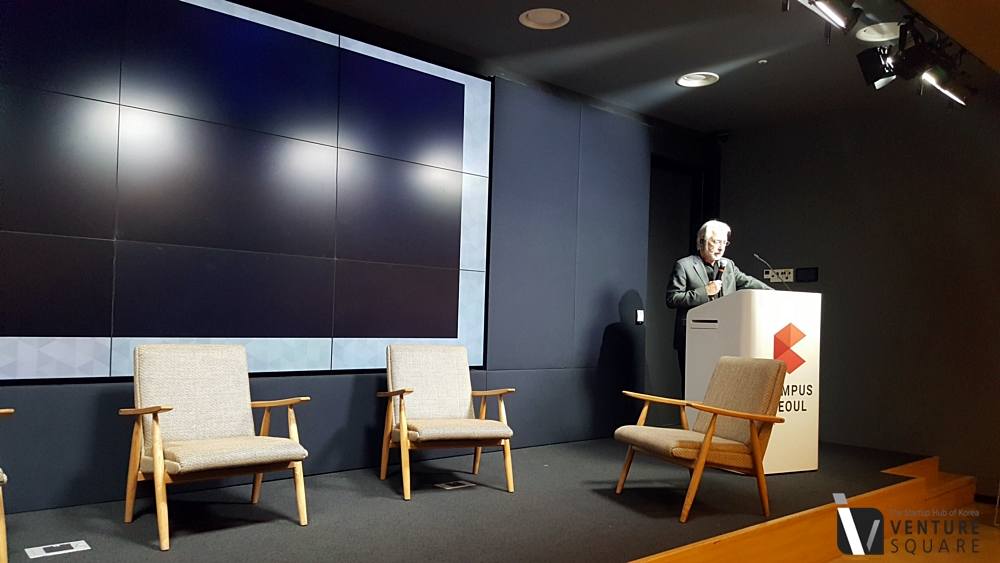Google Korea held a public forum titled as ‘Open-News Ecosystem’ at Google Campus Seoul on the 14th. This forum included a lecture by Google News Director, Richard Gingras. He has experience in broadcasting field while working at US broadcaster PBS and launched the Apple News service.
Based on more than 30 years’ experience, the General Director of Google News, Richard Gingras said “We cannot know everything at this rapidly changing point”, and added “I hope we all have time to think about what topic would be a concern today”.
The full-scale story about the news ecosystem started with advertisement. Gingras stated that current advertisement issues needed to be resolved for advancement of news in the mobile ecosystem. He emphasized that pages including massive advertisement are now shunned by readers, thus losing credibility. Advertisement, however, is not the single cause of every issue.

He highlighted in particular that 35% and 70% of European readers and US readers respectively block advertisements or use a viewer for content only and explained that, “We will lose more than 60% of readers if advertisements take more than 30% of the page”.
His explanation pointed out difficulties of focusing on content caused by excessively high proportions of advertising revenues and is deeply involved with the AMP (accelerated mobile page) that Google recently launched. It was also an appeal as well as persuasion toward domestic media, which raised the question for AMP.
Launched by Google, the new news platform, AMP, is a type of mobile page-optimizing platform to create mobile pages faster. It is for minimizing the use of ZAVA script while maintaining Web standards, eventually leading to an increase in page loading speed. By grafting Google cache service onto it, faster page loading can be achieved.
The problem that remains is how much it could be utilized in domestic media environments where ZAVA script is generally used in most banner advertisements including plotting, flash, etc., as well as in tracking advertisement effects.
Regarding this problem, the Google News General Director, Gingras explains the AMP policy that “does not allow any hindrance that disturbs consumption of content”, and added “We will remain concerned about advertising methods not to disturb user experience”.

He also promised to keep balance between readers and media by supporting media via various programs such as server support, paid subscription programs, etc., and by using a method to show advertisements after loading the article.
In addition, he highlighted that, “Google is concerned about various ways to access news content, but does not conduct any discretionary editing; instead, news content is exposed to mechanical algorithms only”. This means that Google thoroughly aims for open web and exposure of search results according to the response of user.
He also stated that the AMP was the complete open source, not the service run by Google. It is available for anyone free of charge and the media can freely use the Google Cache service. It has something in common with open web. It differs from the Instant Articles that Facebook recently launched in this context. Differing from the content limited to the company’s own app., Google AMP aims to create better user experience by increasing mobile web loading speed while maintaining the previous webpage form.
The Google News General Director, Gingras concluded his lecture with, “This is a difficult time, but the future of media is still bright. It is the time to think about how we will approach the new journalism”. In addition, he said “We plan to do everything we can for the future of media, while expanding cooperation and communication with other media”
You must be logged in to post a comment.